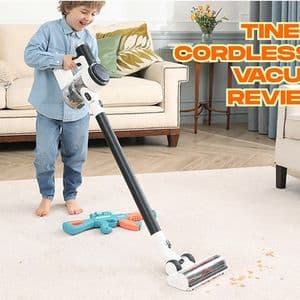Why Vinyl Floors Need the Right Vacuum
Not all robot vacuums are created equal. Vinyl flooring, especially luxury vinyl plank (LVP), is susceptible to scratches and scuffing if you use the wrong brush type or suction power.
That’s why you need a robot vacuum designed to:
-
Glide gently across soft surfaces
-
Avoid aggressive bristle brushes
-
Handle dust, pet hair, and debris effectively
So what should you look for?
What to Look for
Before diving into product recommendations, here are the key features to prioritize:
1. Soft Rubber or Brushless Rollers
Hard bristles can scratch your floor. Look for vacuums with silicone rollers or soft brushless systems.
2. Smart Navigation
Efficient movement means less bumping into furniture and corners. This reduces wear and tear on your floors.
3. Adjustable Suction
Powerful suction is great, but it needs to be adjustable to avoid pulling up floor seams or applying too much pressure.
4. Floor-Type Recognition
Some high-end models auto-detect flooring type and adjust their cleaning accordingly—perfect for mixed-floor homes.
Read more: https://toolhome.org/can-you-use-roomba-on-hardwood-floors/
Common Concerns About Robot Vacuums and Vinyl
You may be wondering…
Can robot vacuums damage vinyl floors?
Only if they use stiff brushes or overly aggressive suction. That’s why choosing the right model is key.
Using a Roomba on Hardwood and Mixed Floors
If you have hardwood in addition to vinyl, you might be asking:
“Does a Roomba work on hardwood floors?”
Yes—especially newer Roomba models like the j7+ or s9+. They adjust to different surfaces in real time, so transitioning between vinyl and hardwood is seamless.
These models also use rubber rollers instead of bristle brushes, making them safe across floor types.
Tips for Using a Robot Vacuum on Vinyl Floors
Here are a few pointers to get the most out of your vacuum:
1. Empty the Dustbin Regularly
A full bin lowers suction efficiency and increases strain on the motor.
2. Avoid Water Mopping on Unsealed Vinyl
Some robot vacuums have mopping features. If your vinyl floor isn’t waterproof or sealed, skip the water to avoid warping.
3. Clean the Rollers Often
Even soft rollers can collect debris that causes micro-scratches if left unchecked.
Multi-Surface Households? No Problem
If your home features a mix of vinyl, tile, and hardwood, you might ask:
“Can you use a Roomba on hardwood floors?”
Absolutely. Most mid-to-high-end Roomba models perform well across all hard floor types. Just avoid the budget versions with traditional brush rolls—they’re more likely to scratch softer floors.
Final Thoughts
Choosing the best robot vacuum for vinyl floors comes down to understanding your home layout, your budget, and how much automation you want.
If your priority is floor safety, stick to models with soft rollers, mapping tech, and smart features. With the right pick, your robot vacuum will keep your vinyl floors spotless and scratch-free—without lifting a finger.



















